Money on the move
How a bank from the Indian city of Varanasi is getting the local economy moving – and making the hearts of investors beat faster.
For devout Hindus, Varanasi is the best place on earth to die. They believe that if their life ends in this holy city on the banks of the Ganges – which is believed to be the second oldest in the world – they will escape the cycle of rebirth. When the Norwegian Knut Nordenhaug travels to this city of four million inhabitants, he is not in search of a good death, however: He wants to see how Utkarsh Small Finance Bank is improving the lives and economic situation of people in the Indian state of Uttar Pradesh.
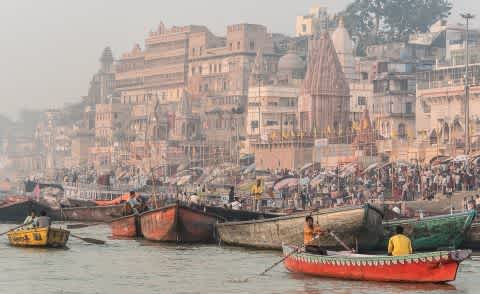
Knut Nordenhaug is CFO and Deputy CEO of Gjensidige Stiftelsen. As Norway’s largest foundation and the principal owner of the insurance company of the same name, it is an important player in the Norwegian financial centre. Knut and his team manage around USD 10 billion of assets and he is always on the lookout for compelling investment opportunities – in other words: Investments that are clearly focused on returns and are, at the same time, sustainable.
Since 2015, the foundation has held shares in an investment company with a portfolio of micro- and SME banks in developing countries. Utkarsh Small Finance Bank is one such institution.
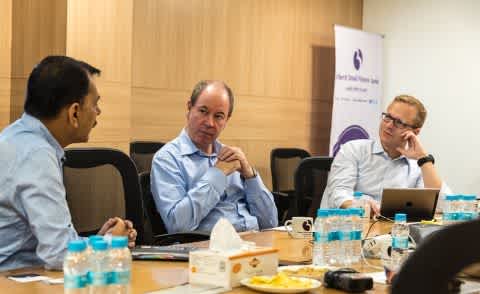
PROGRAMM: WACHSTUM
Der Name Utkarsh kommt aus dem Sanskrit und heisst so viel wie „Aufstieg“ oder „Fortschritt“. Für die Bank mit ihrem Hauptsitz in Varanasi ist er Programm: 2009 gegründet von CEO Govind Singh, einem erfahrenen Banker aus Mumbai zielt, sie seit ihren Anfängen auf das Thema finanzielle Integration ab.
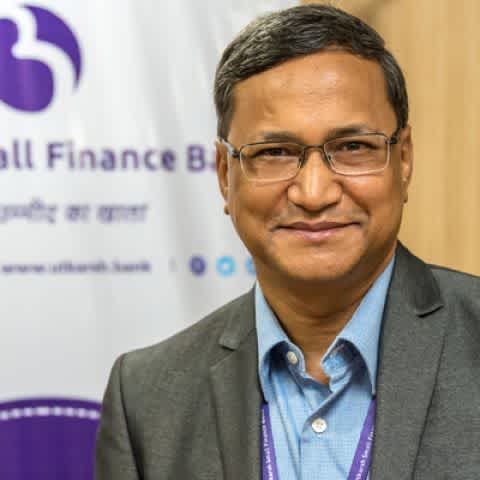
“From the very beginning, our focus has been on fostering financial inclusion.”
Govind Singh, CEO of Utkarsh Small Finance Bank
Microfinance is still a major driver of financial inclusion in India. Although the country has made significant progress in recent years, just over half of its population of 1.3 billion people had a bank account in 2014 – and only 7% had their wages or other payments transferred to a bank account. As in most developing economies, the informal sector accounts for a large proportion of value creation. Even if people make a living from this sector, they are not regarded as suitable retail customers by banks.
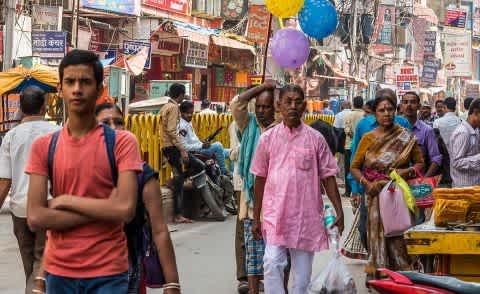
Microfinance serves the needs of this section of the population by providing special credit mechanisms. “We organize customers into groups of five women,” explains Sanjay Singh, Zonal Head Microbanking at Utkarsh in Varanasi. “To begin with, they receive a loan of up to USD 380, which has to be repaid within 14 months. The groups meet every two weeks to pay back instalments of their loans and they use this as an opportunity to exchange views and ideas with each other and with bank representatives. With each credit cycle, they are entitled to a larger loan and become part of the 'official' financial sector," adds Sanjay.
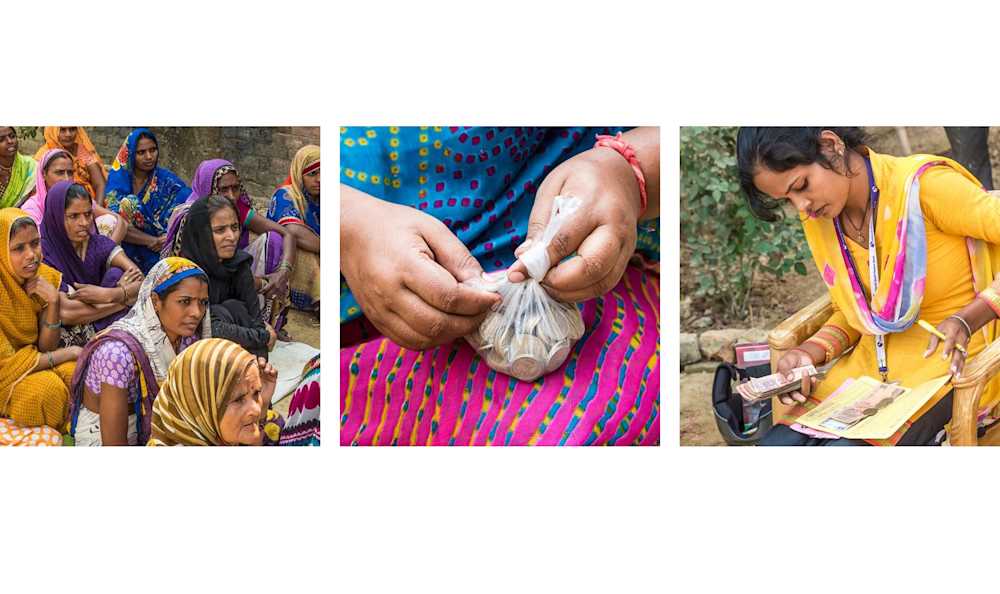
Murta from Harhua also has a group loan. Located 15 kilometres from Varanasi, Harhua is home to the very first branch of Utkarsh. Today, Murta is attending a ‘center meeting’ that brings together six lending groups. Using her loan, her son Vishal, aged 22, runs a mobile phone business here in rural Harhua and sells prepaid cards, phone chargers, headphones and other accessories. Although the shop is fairly quiet with just one customer on the Friday morning when we visit, it generates enough sales, especially in the evenings. “I can repay the loan, and my son can feed his family and put some money aside,” Murta explains proudly.
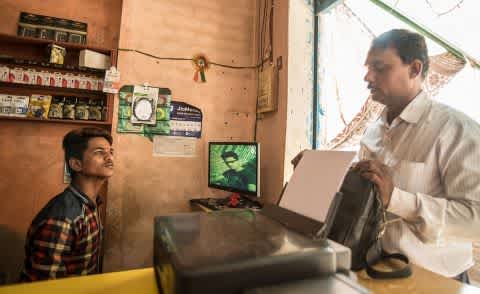
The fact that the son runs the business using his mother's loan is not seen as a problem by Utkarsh. The family is sacred in India. The son can’t afford not to give his mother the money for the loan repayments – how would she look in front of all the neighbours? “This system means that the bank has extremely low default rates," Sanjay Singh explains.
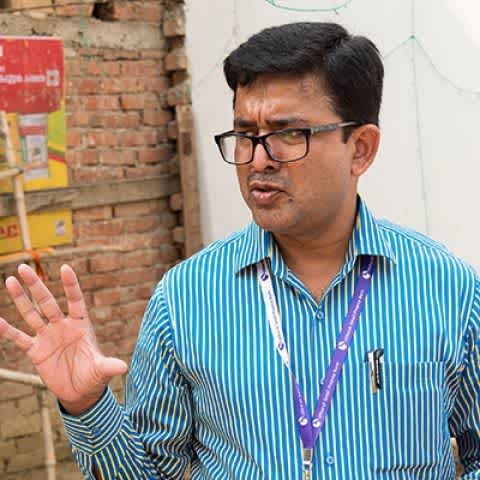
“Mothers borrow on behalf of their sons. As the family is sacred in India, this system means that the bank has extremely low default rates.”
Sanjay Singh, Zonal Head Microbanking - Varanasi
AWAY FROM THE CENTRE
Murta is typical of the around 1.3 million customers of Utkarsh Small Finance Bank – and of the population in the area surrounding Varanasi. The western part of Uttar Pradesh, as well as the neighbouring state of Bihar, belong to the most densely populated and also the most underdeveloped region of India.
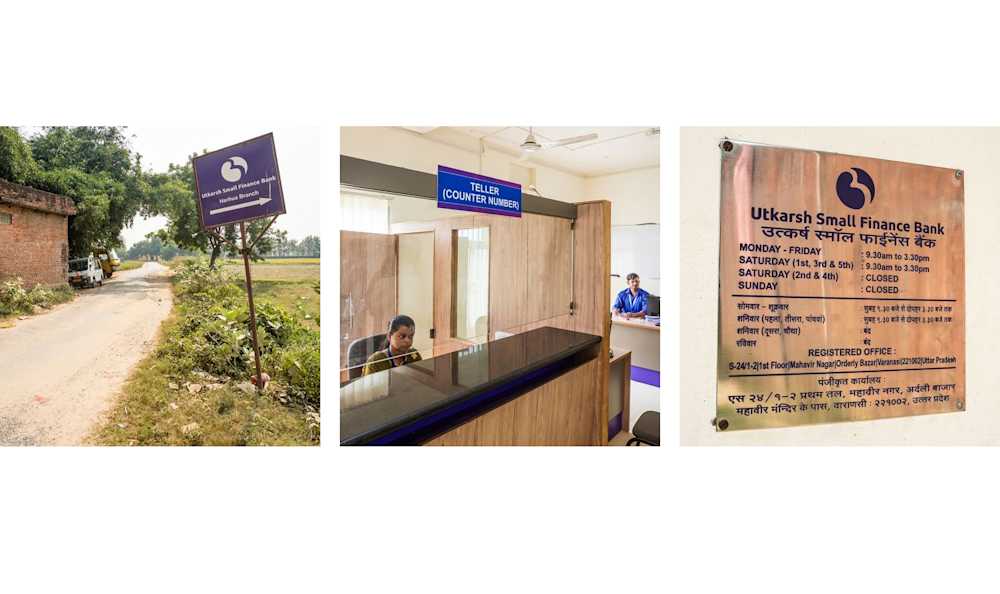
“When I decided to set up Utkarsh here in 2009, I knew very little about Varanasi," Govind Singh explains. “But I realized that a microfinance institution would have the greatest impact in this area.” Starting with a handful of like-minded colleagues and building an experienced team of bankers, Govind Singh has made Utkarsh one of the top ten microfinance institutions in India in the space of just a few years. In early 2017, it successfully completed the transition to ‘Small Finance Bank’.
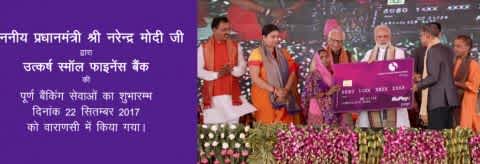
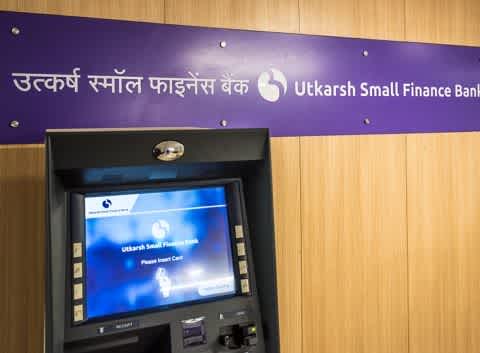
At the end of 2016, 94% of Utkarsh's clients were lending groups benefiting from microloans averaging USD 198. Now, the team led by Govind Singh is working at full speed to exploit the opportunities arising from Utkarsh's change of legal status. The bank can now offer savings accounts, issue bank cards and install ATMs. In addition, Utkarsh wants to diversify its offering more in the direction of SME loans and home construction loans and to increasingly offer insurance policies via its impressive branch network.
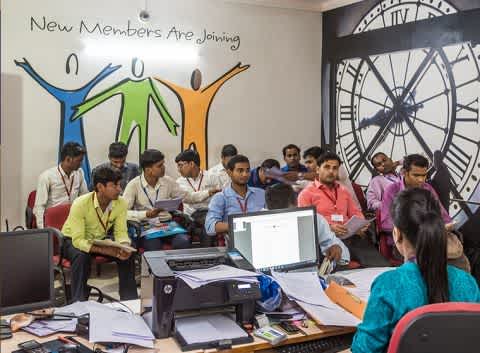
Utkarsh is expanding: It achieved growth of 54 % in 2016, despite the shock waves created by the demonitization initiative introduced by Prime Minister Modi virtually overnight, which turned the Indian economy upside down. In the bank’s HR department, dozens of young people are waiting for interviews: 200 new employees are recruited each month – obtaining skilled jobs in banking in a region where only one financial institution, Utkarsh, is headquartered.
IPO BY 2022
A visit to the new administration centre shows that professional bankers are systematically building new structures here. The bank is pursuing ambitious goals: It aims to achieve growth of 150 % by March 2020 and wants to obtain a stock market listing by 2022 at the latest. The growth forecasts are not exaggerated, says Govind Singh. “Of the 300 million people in our core region alone, we currently serve just 1.3 million – and most of them simply take out a loan. There is vast potential."
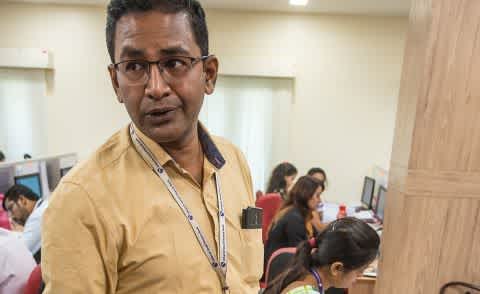
After two days at Utkarsh, experienced investor Knut Nordenhaug is visibly impressed by this portfolio company. “Utkarsh has an experienced management team in place and operates like any bank back home. The biggest difference is its growth potential – which is massive because basic needs are being met here and that is leading to better incomes – and better lives."
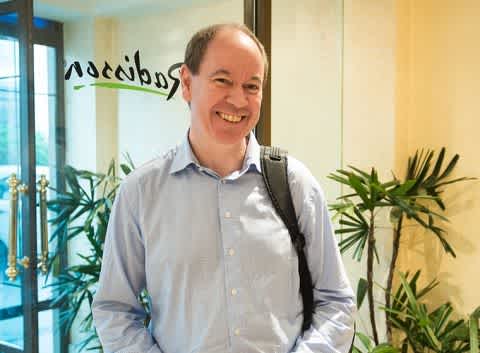
“Utkarsh has an experienced management team in place. And the growth potential is massive.”
Knut Nordenhaug, CFO of Gjensidige Stiftelsen, Norway’s largest foundation
UTKARSH SMALL FINANCE BANK: DEVELOPMENT IMPACT
BASIC NEEDS
Utkarsh Small Finance Bank helps to combat poverty by addressing the need for basic services such as loans and savings products among low-income sections of the population.
Number of borrowers 1.3 million
Volume of loans outstanding USD 256 million
Average loan volume USD 198
Proportion of microfinance clients living in rural areas 93 %
Proportion of female microfinance clients 98 %
WELLBEING
By paying taxes, Utkarsh Small Finance Bank supports the state in its efforts to invest in development-related public services such as health, education, justice and equality of opportunity for all.
Assets USD 391 million (2016)
DECENT WORK
Utkarsh offers secure jobs in an inclusive environment with good working conditions and, in doing so, contributes to sustainable economic growth. As the only bank headquartered in Varanasi, Utkarsh provides skilled jobs in finance in the region both for experienced bankers and for graduates who are recruited straight after completing their training. Thanks to its successful growth, the bank is recruiting 200 new staff each month.
Number of employees 3,845
Proportion of female employees 7 %